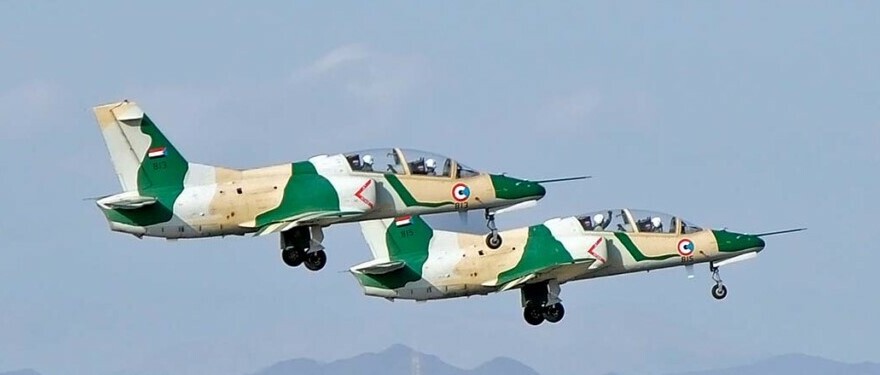Analysts have now shifted focus to expose reasons behind the army’s decline and the surge in RSF’s activities following recent military confrontations between the Sudan Armed Forces and the Rapid Support Forces in Darfur cities.
The cities on focus include; Nyala, Zalingei, El Geneina, and El Daein, where the Rapid Support Forces demonstrated clear dominance.
The analysts suggest that the Rapid Support Forces’ strategic mobility and incursions into various regions provided them with a tactical advantage over SAF.
The latter relied on a defensive and static approach, maintaining positions in camps and predetermined locations without actively engaging in movement.
This freedom of movement granted the RSF with multiple opportunities to form alliances within the region, garnering support from certain civil society leaders while neutralizing others.
This approach ultimately contributed to shrinking the area controlled by the army, except for specific areas in North Darfur state, in exchange for a substantial expansion of the Rapid Support Forces.
Beyond military considerations, the political landscape also appears unfavourable for the army commander. Various regions in Darfur have experienced political unrest, with protests emerging against Lieutenant General Al-Burhan’s political and military decisions.
In December, significant demonstrations erupted in El Geneina, the capital of West Darfur State, in response to the government’s decision in Port Sudan to dismiss the appointed governor, Al-Tijani Al-Tahir Karshoum. Karshoum had been designated as acting governor of West Darfur State following the Juba Peace Agreement under the former governor, General Khamis Abkar.
The decision to dismiss Karshoum triggered violent reactions from demonstrators, expressing support for him and demanding the central government revoke the dismissal decision.
Despite these calls, the government did not address the demonstrators’ demands, negatively impacting its relationship with the masses in West Darfur state.
In the capital of East Darfur State, El Daein, large-scale demonstrations on October 10, 2023, voiced opposition to the ongoing war and called for peace.
These protests were triggered by offensive remarks from army commanders directed at neighbouring countries. Lieutenant General Yasir Al-Atta, a member of the Sovereignty Council, was singled out for accusing certain countries of conspiring against the Sudanese regime.
Demonstrators raised banners advocating respect for these countries and denouncing the killing of civilians in the conflict.
In Nyala, South Darfur, demonstrations on December 19, 2023, protested the army’s aggressive actions towards citizens following its loss to the Rapid Support Forces (RSF).
The army attempted to bomb potential RSF targets through the air force, resulting in civilian casualties and damage to homes and public facilities.
Outraged citizens marched against the indiscriminate bombing, with some protesters characterizing Al-Burhan as a racist targeting Nyala for regional reasons. They called on the international community to impose a flight ban over Darfur.
Meanwhile, in Zalingei, the capital of Central Darfur State, a peaceful demonstration took place on December 24, opposing the war and urging peace.
Participants, including women responding to a call from the Sudanese Popular Forces Against War, demanded an end to the conflict and denounced violations against civilians by both sides.
The demonstration sent a direct message to the President of the Sovereignty Council, urging him to halt the targeting of civilians. They called on the regional and international community to intervene and exert pressure on both conflicting parties for a lasting and sustainable peace that alleviates the war’s burden on citizens.
Darfuri human rights activist Essam Dhaif Allah highlighted concerns about the army’s intelligence mentality, which tends to label any opposition to the ruling regime on tribal grounds, categorizing individuals based on their tribal or party affiliations as hostile.
Essam Dhaif Allah provided examples of the army’s interactions with the South Sudanese and the rebellious movements within Darfur. He criticized the army’s treatment of tribes associated with the rebellious movements, deeming it inappropriate.
Dhaif Allah suggested that the army’s current approach mirrors its historical methods in punishing Darfur citizens under the banner of the Rapid Support Forces (RSF), despite emotional ties between the army and the people of Darfur.
According to Dhaif Allah, the army appears uninterested in stabilizing Darfur cities during the ongoing conflict. He highlighted the extensive damage caused by the army’s artillery bombardment compared to RSF bombings, indicating the army’s destructive impact on Darfur.
The activist concluded that the army’s popularity in Darfur has significantly declined due to excessive violence, echoing sentiments in other Sudanese regions.
Academic and researcher Rashid Khalil emphasized that the army commander’s statements and behaviours should be viewed within the broader military and political context, suggesting that the army’s methods in Darfur are interconnected with violence affecting other Sudanese regions.
Khalil emphasized the political nature of the conflict, stating that the army, the Al-Bashir Security Committee, and the defunct regime resist any change removing the defunct system from the political arena. He noted the system’s readiness for violence and destruction, disregarding regional or tribal considerations.
Khalil hinted at the army’s alliances with some Darfuri armed movement leaders and highlighted Darfur’s growing awareness of the importance of peace across Sudan.
Political activist Ahmed Saleh noted that the army’s aerial bombardment, especially in Nyala, reduced citizens’ support for the army. He observed a shift in many residents’ allegiance toward the RSF, given the absence of direct combat confrontations in the region.
Acknowledging potential scepticism due to opposing war factions, Saleh recognized lingering support for the army among some Darfur residents.
However, he suggested that the army’s withdrawal from many areas in Darfur had created uncertainty and weakened support for its imminent return, exacerbated by inconsistent media narratives.
To contact Radio Tamazuj with comments, news tips or information, write to radiotamazuj@gmail.com or use the contact form.




